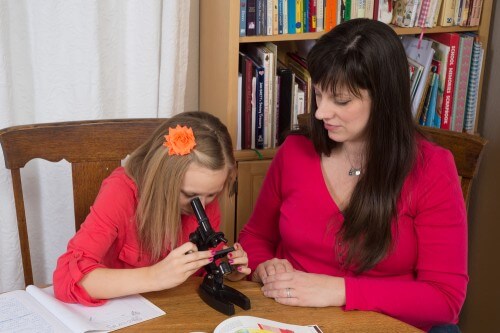The US is neglecting its most promising science students

Education policy makers in the USA, and in fact the entire USA, are trying to increase the ranks of future innovators in science and technology. But the programs that receive funding in the American education system do not support students who are already interested in science and excel in it. These students have the potential to make an extraordinary contribution to science, but without public investment they will not meet the challenges of a scientific career. This is especially true for students whose parents are not educated or have means.
The lack of investment is not accidental, but the result of two myths about the identity of these students and what they need from the education system. One myth is that all gifted students come from established social classes. The second myth is that students who succeed at some stage in their studies will be able to succeed independently, without help and supervision. We claim that all children deserve to be challenged intellectually, including the most gifted. Many students from low socio-economic backgrounds never get the opportunity to develop their talent beyond the basic curriculum. Jonathan Flecker of the University of Connecticut showed that the gap between successful students from low economic backgrounds and their peers from higher socioeconomic backgrounds widens as they approach high school graduation. Moreover, international comparative studies show that all students, with the exception of the top decile, improve their science scores if they invest in them.
Today we know how to identify talented students in science who are motivated to succeed. They thrive in enriching environments (like math clubs or rocket building clubs) both in and out of school. Standardized tests identify exceptional typing abilities in math and spatial skills. Expressing an interest in science in elementary or middle school are good predictors of future careers in science, technology, engineering and mathematics.
We also know a thing or two about the services that might do the most to help gifted kids retain scientific curiosity, even in advanced courses. According to researchers at Vanderbilt University, middle school is the best stage to start looking for students with exceptional math abilities and teaching them advanced math and science. Such courses are now widely offered through talent search programs at Northwestern, Johns Hopkins, Duke, and the University of Iowa. At this age, talented students can be taught to write in the language and manner common in scientific journalism. There is no doubt that these advanced skills and content depend on teachers who themselves have the necessary knowledge and skills, especially a strong background in mathematics.
A classroom lesson, no matter how instructive, cannot recreate the camaraderie or excitement (and sometimes frustration) of science in a real workplace. Students can experience science at a university, hospital, commercial company, or museum laboratory through training programs or apprenticeships. Local, regional or national competitions such as science fairs and science olympiads are also excellent opportunities for creative problem solving and learning advanced material. These avenues provide opportunities for students from different social and economic backgrounds to share their talent and interests.
Competitions can be exciting, but also damage self-confidence. Ask musicians or athletes how important training is to helping them overcome obstacles. For this reason, a comprehensive talent cultivation program should include a psychological training garden adapted to the academic world that will increase the youth's ability to stick to the goal by learning how to "come out on top" or change tactics in the face of difficulties.
If it is really important for us to produce new generations of scientists and innovators, we need to find talented young people in science and help them realize their potential. Even channeling a small percentage of the US science education budget towards students who have already demonstrated interest and achievements can yield a large return. And at a more fundamental level, it will challenge false assumptions about talent and elitism that have blinded policy makers and prevented them from engaging with this student population.
_______________________________________________________________________________________________________________________________________________________________
About the authors
Rina P. Subotnik is the director of the Center for Psychology and Education at the American Psychological Association.
Paula Olszewski-Kubilius (Olszewski-Kubilius) is the Director of the Talent Cultivation Center at Northwestern University.
Frank S. Worrell is a professor in the School of Psychology at the University of California, Berkeley
The article was published with the permission of Scientific American Israel
